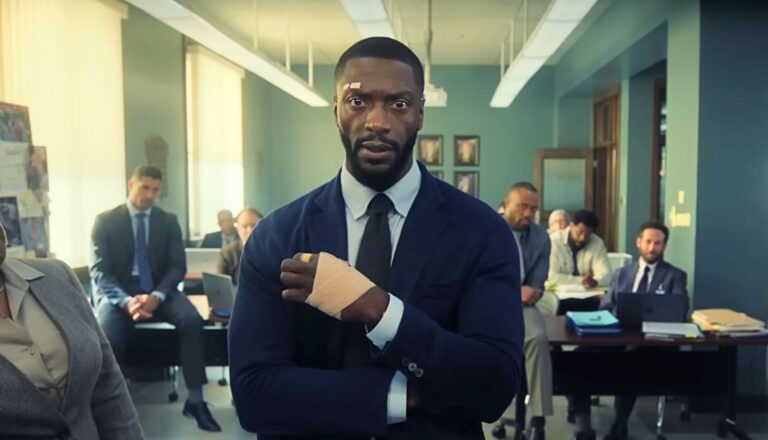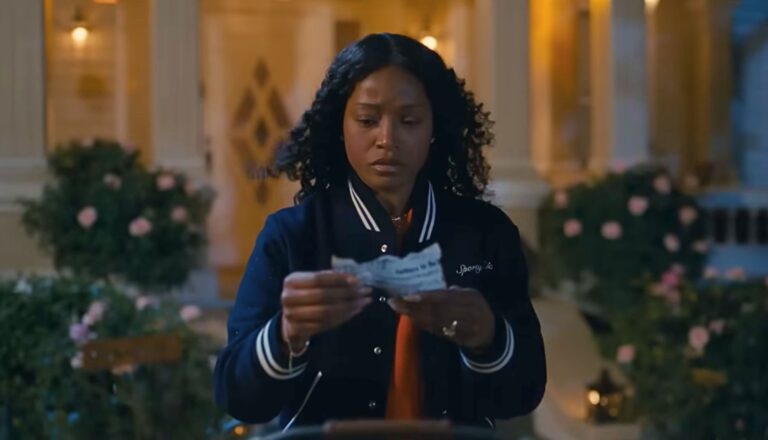
Unfamiliar
Filled with gritty violence and foul language, when it comes to this German spy drama, “unfamiliar” is how most viewers should stay.

So a vampire, a ghost and a werewolf move in together.
Seriously. There’s no joke setup here, no punch line. We’re not even talking about a reimagining of The Munsters. This is the crux of SyFy’s semi-serious drama Being Human: three archetypal “monsters” rooming together in Boston.
You’d think there’d be some natural tension, given the living (or in some cases, unliving) situation. What if vampire Aidan spills blood on the carpet? What if Josh the werewolf sheds excessively? And then there’s Sally, who never pitches in to wash dishes or pick up the place. As a ghost, it’s difficult for her to pick up anything at all.
But the three get along quite well, all things considered. And that’s a good thing because, as folks who don’t fit neatly into Boston’s societal norms, they can use all the friends they can get.
That’s the thing about Being Human: It really is about being human—albeit in somewhat monstrous ways. Based on a popular BBC series of the same name, the show uses this curious threesome to explore what it’s like to grow up, move out and make your way through this confusing, sometimes hostile world. Aidan, Josh and Sally are as much metaphors as monsters—characters who speak to the inherent alienation that many of us feel every day.
Aidan, part of the ever cool and snooty vampire cliqué, finds he enjoys hanging out with his less-than-hip friends more than folks of his own caste and kind. Josh struggles to keep his inner demons under control, all while trying to reconcile his nature to his family and himself. Sally, killed by her abusive fiancée, finds that she still hasn’t escaped the relationship—even in death.
“You don’t have to be a fan of any sort of vampire movie or show, or any genre show to watch this show because at the end of the day it’s about their relationships and what’s happening to each other on a very human level,” Anna Frick, one of the show’s executive producers, told poptimal.com. “When we talk about these characters, they all want what all of us want which is sort of to be normal. All of us are fighting the monster within, only they are fighting real monsters.”
Which makes Being Human better than you’d think. These characters all want to retain, or reclaim, a sense of humanity—not embrace or excuse their less than ideal natures. This show, at least at the outset, is less about accepting yourself for who you are (which is a great message that’s lately been taken to an unhealthy extreme in a whole host of other entertainments) as it is about pushing yourself to be better—and along the way, finding a sense of peace and community.
That said, being human also apparently means being violent. And crass. And uninhibitedly sexual. Depending on the episode, viewers can be exposed to nudity, gore, killings and extremely uncomfortable situations. Josh’s sister is a lesbian, and Josh’s own condition can seem, at times, to serve as a metaphor for closeted homosexuality. Aidan’s past murders get screen time. And the show’s supernatural and theologically twisted underpinnings run the gamut from dim to dark.
“What we loved about the original series is that it is dark and it does push the envelope,” Fricke told TV Guide. “We hope to do the same thing.”
And that’s being human, too.
(Editor’s Note: Plugged In is rarely able to watch every episode of a given series for review. As such, there’s always a chance that you might see a problem that we didn’t. If you notice content that you feel should be included in our review, send us an email at letters@pluggedin.com, or contact us via Facebook or Instagram, and be sure to let us know the episode number, title and season so that we can check it out.)
Josh takes his sister (beaten half to death by a vengeful vampire in the previous episode) back home to their parents. Thing is, Josh ran away from home once he learned of his lycanthropy and hasn’t been back—or even in contact—since. His parents, confused and hurt by his disappearance, dig for answers to why he “thinks” he’s a werewolf, desperately wanting to understand him and get him the help he needs.
Josh wants to stay home. But knows if he does, he puts his family in danger.
The story also hits on such issues as racism, domestic abuse and homosexuality. We hear frank discussions about sex (including homosexual sex). Two vampires get into a nasty, bloody fight. We see a flashback of Sally’s death: Struggling with her fiancé, she’s slammed into a wall and tumbles down a staircase. We see Josh begin his grotesque transformation into a wolf. Josh’s sister sports several cuts and bruises. She smokes. And we hear references to alcohol and drug abuse. Characters drink wine and beer. They say “h‑‑‑” and “douche” and misuse God’s name.

Paul Asay has been part of the Plugged In staff since 2007, watching and reviewing roughly 15 quintillion movies and television shows. He’s written for a number of other publications, too, including Time, The Washington Post and Christianity Today. The author of several books, Paul loves to find spirituality in unexpected places, including popular entertainment, and he loves all things superhero. His vices include James Bond films, Mountain Dew and terrible B-grade movies. He’s married, has two children and a neurotic dog, runs marathons on occasion and hopes to someday own his own tuxedo. Feel free to follow him on Twitter @AsayPaul.

Filled with gritty violence and foul language, when it comes to this German spy drama, “unfamiliar” is how most viewers should stay.

Oliver Twist’s Artful Dodger isn’t 13 anymore: He’s an adult. And being an adult comes with more grown-up problems.

Though it’s compelling, the content concerns in Prime Video’s ‘Cross’ might be enough to cross it off your watch list.

‘The ‘Burbs’ is Peacock’s attempt to adapt the 1989 movie of the same name. But a fresh coat of paint doesn’t hide the content issues.